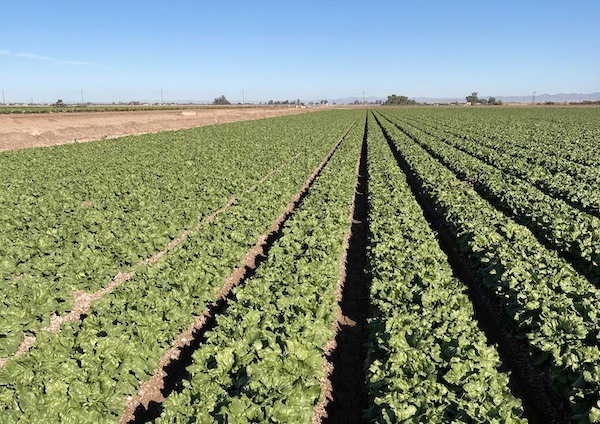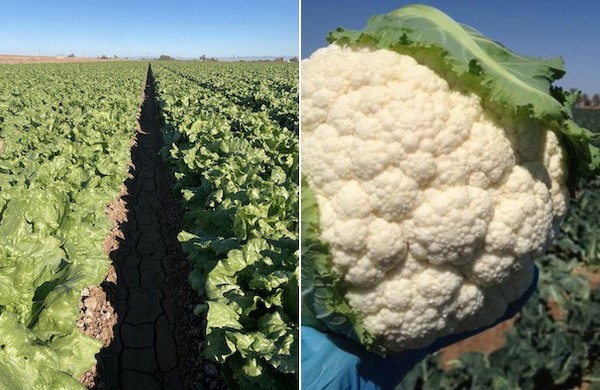“It’s going to be a mess for the next 90 days.” That’s what Mark McBride of Coastline Family Farms sees ahead as the transition of vegetable crops from Brawley, California to Salinas, California takes place. “We’re in the midst of it now and hopefully by next week, everything will be in one place in Salinas.”

In Brawley, there is some product such as lettuce, romaine, romaine hearts and green onions still shipping out of the region. “We have all gone late by design when we saw the bad weather coming up here in Salinas and we knew there were going to be supply gaps. You do what you have to do to ensure a consistent supply, even if that supply is scattered about the West Coast or isn’t in an ideal location,” says McBride, referring to the significant rains Salinas saw in January which affected the planting season.
He anticipates that by next week, there will be volume coming out of Salinas however it won’t be at normal levels. “At least it will be more consistent and we all pretty much have our product loading in one spot even though we won’t have near as much as we need,” he says.
Quality concerns
Even with the fields that were able to be planted before or in between heavy rain events, there was still consistent moisture. “It was so wet for such a long period, I’m anticipating small size in lettuce and romaine, light weights in everything and some of the commodities like broccoli or cauliflower could be subjected to some discoloration or the broccoli could have some pin rot. That’s another issue exacerbated by the wet conditions,” McBride says, noting that cool temperatures in California this week could also contribute to this.

In all, he’s expecting the effects of the January-February rains to interrupt supply into late June, even July possibly. “It’s going to lead to some interesting possibilities out there where you may have a shipper that has too much and in the same week, you may have another who’s very very short. It’s going to be a real mixed bag,” he says.
He does note that the commodity that’s most affected in all of this is cauliflower, a volatile crop grown in the valley that’s temperature sensitive. “We’ve seen some real extreme swings in the cauliflower availability and market levels over the past several months. It looks like that’s going to continue,” McBride says, noting currently the cauliflower market is pushing $80/carton.
 For more information:
For more information:
Mark McBride
Coastline Family Farms
Tel: +1 (831) 755-1430
[email protected]
www.coastlinefamilyfarms.com
